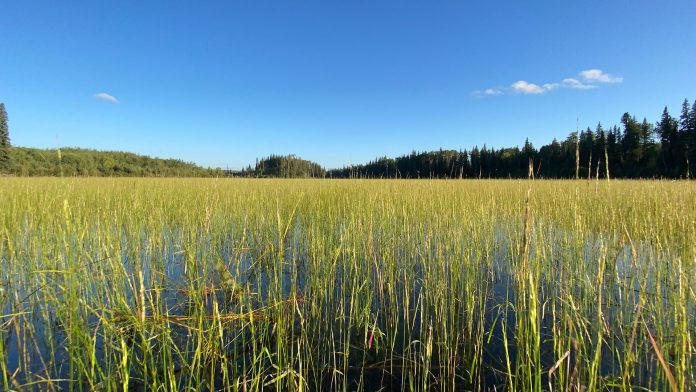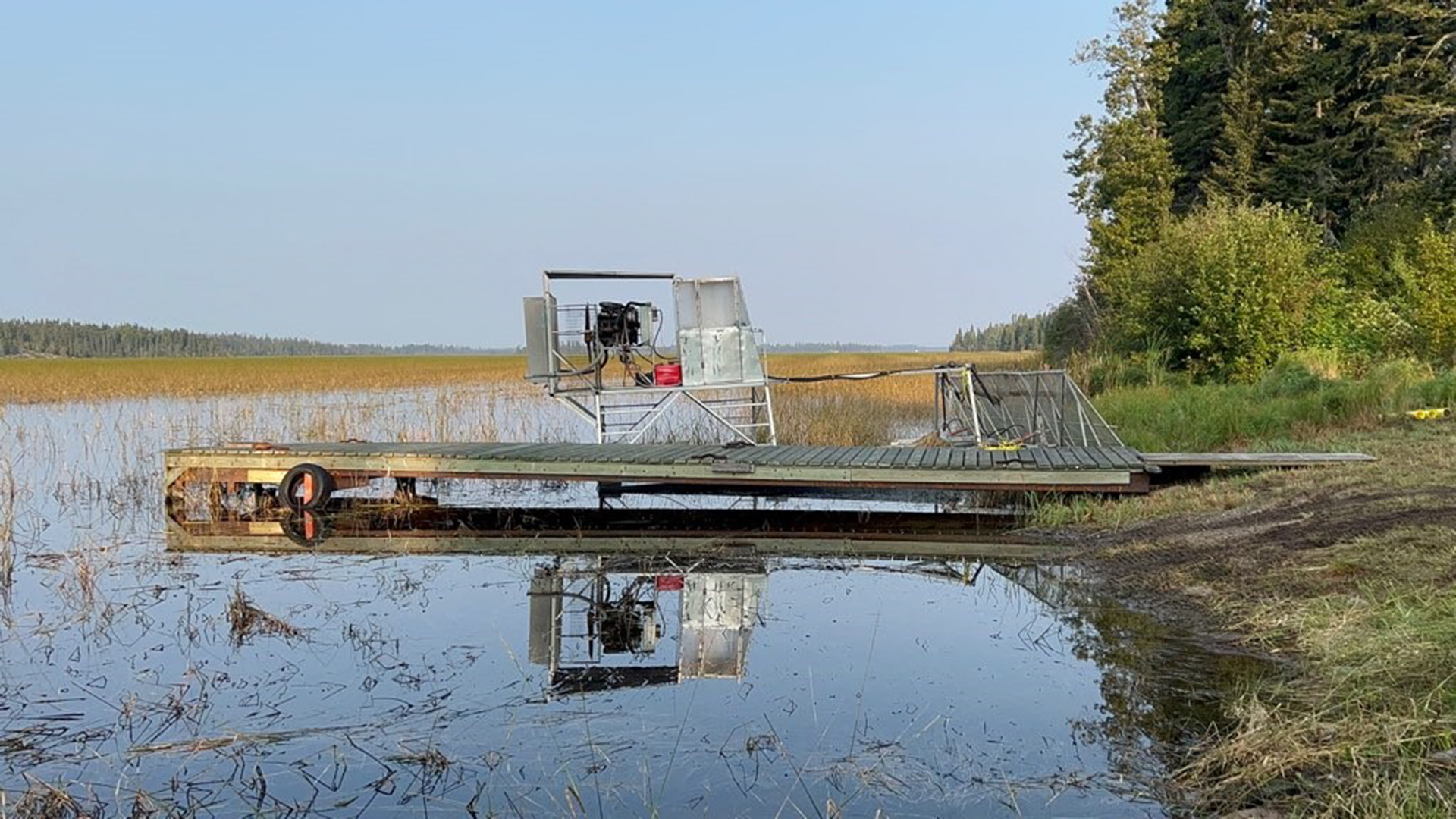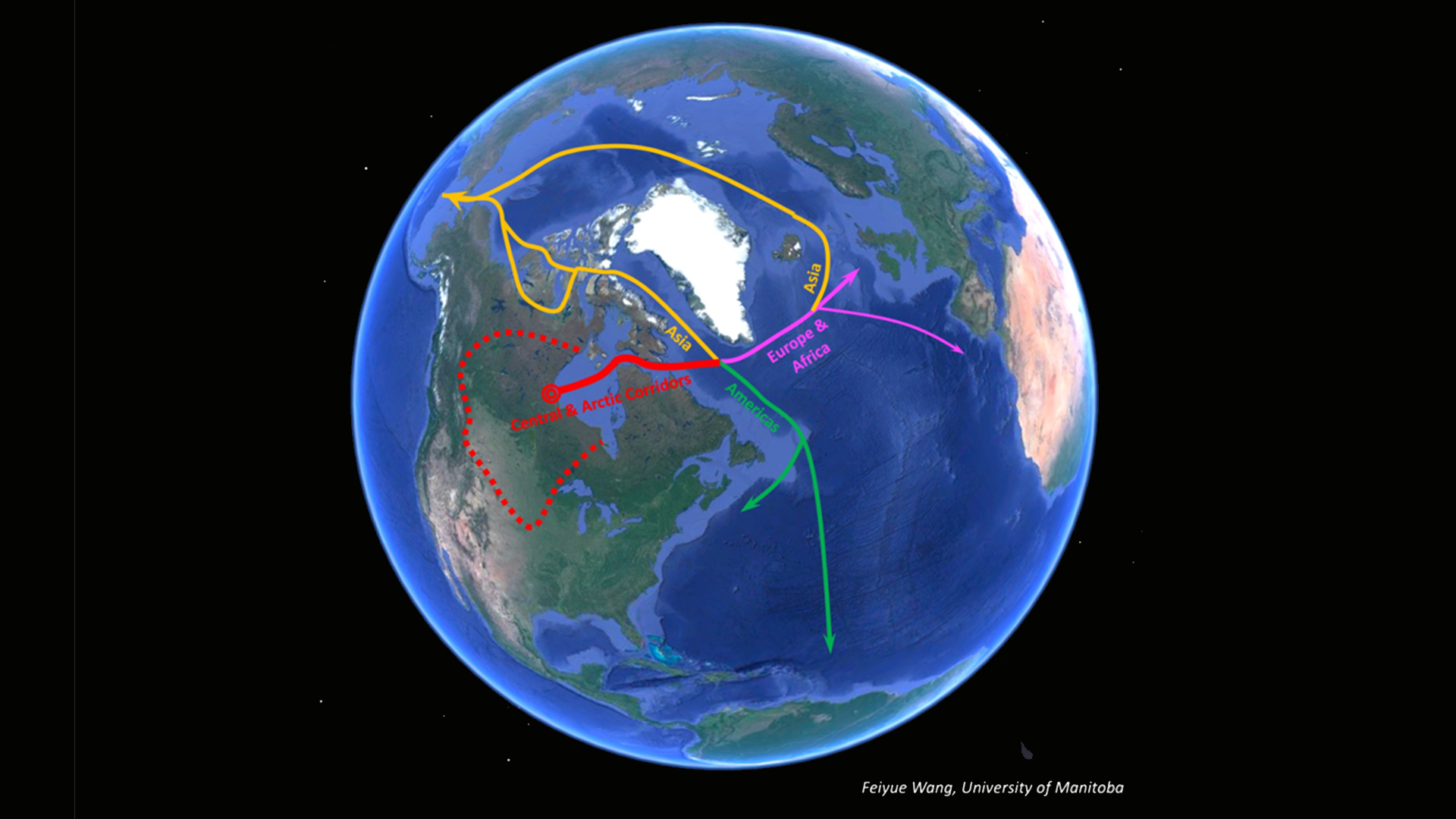Through research and collaboration, the University of Manitoba is addressing the growing challenges facing Indigenous peoples, advancing food systems and climate change mitigation as part of its reconciliation efforts.
Situated at the midpoint between Western and Eastern Canada, the Province of Manitoba has the largest, most diverse, and fastest-growing Indigenous population in North America. It’s flagship post-secondary institution, the University of Manitoba (UM), is a leader in research, innovation, and collaboration. As a driving force for progressive thought and transformational change, we are uniquely positioned to lead the way in advancing reconciliation.
Our institution is committed not only to fostering the intellectual growth of researchers and students but also to helping re-shape the narrative of reconciliation with the leaders of tomorrow.
Located on the Canadian Prairies, the original lands of the Indigenous peoples of the Anishinaabeg, Ininewuk, Anisininewuk, Dakota Oyate, and Denesuline, and the National Homeland of the Red River Métis, UM is a Prairie institution that embraces the Indigenous peoples and roots of the land by advancing social and economic reconciliation through bold, transformational research initiatives. We are also engaged with the Inuit people who inhabit Northern Manitoba.

UM’s central priority is to advance human rights and social justice as part of its renewed research agenda. This priority includes building on our research strengths in water and food security and sovereignty, and partnering with Indigenous rightsholders to develop future trading pathways through the Hudson Bay to transform connectivity, strengthen regional and global supply chains, and secure economic prosperity for local Indigenous communities.
Our research priorities are informed by the unifying concept of ‘One Health and Underserved Communities’, an interdisciplinary approach to individual and community health that recognises the intersection of financial, environmental, logistical, and social factors that influence community health and well-being.
Reimagining food systems for climate change adaptation, mitigation, and social justice
Access to food and fresh water is an essential need of all communities and peoples and is inextricably linked to the economic, social, and environmental health of our planet. However, both climate change and inequities impede such access.
Climate change has threatened access to food and fresh water by altering weather patterns, causing shifts in precipitation, salinity, and ocean temperatures, and increasing the frequency and intensity of extreme weather events. These shifts continue to affect water and food security locally, nationally, and globally.
Though roughly 20% of the world’s freshwater is contained within Canada’s borders, many First Nations and Inuit families in Canada continue to be among the billions of people worldwide lacking access to safe drinking water through systemic inequities including a lack of water sovereignty.
Motivated by these threats and inequities, UM researchers and scholars across disciplines and in the creative arts are actively engaging in interdisciplinary research to raise awareness about the complex interconnectedness between water, food security, and socio-environmental issues, promote innovative strategies, and inspire action toward sustainable solutions.
The Reimagining Food Systems (RFS) project is one of UM’s initiatives where researchers are actively working to tackle these serious barriers to food and water security.
Led by Dr David Levin, UM Professor of Biosystems Engineering, in collaboration with Bruce Hardy, President and CEO of Myera Group Inc., this project is a bold endeavour to mitigate climate-related risks to food security, human health, and living standards in terrestrial and aquatic ecosystems.
Through this project, we hope to empower rights holders to participate in policy formulation and hold accountable those who have a duty to act.
Guided by the principles of a ‘circular economy’ with deep roots in Indigenous Ways of Knowing and Being, RFS leverages the ongoing work of Myera Group Inc., an Indigenous-led corporate body based in Manitoba. It was created to advance food systems technologies in Indigenous communities and promote health and food security.
These principles include stewardship of the land and ecosystem services, which can potentially impact water use, waste reduction, and wealth generation. RFS also incorporates ‘food as medicine’, acknowledging that Indigenous and local peoples possess vast knowledge of traditional medicines and the nutritional benefits of their traditional foods.
Integrating the knowledge, skills, and experiences of Indigenous peoples, riparian, and low-income populations, especially women, with the analysis from global researchers, RFS is a participatory project identifying existing challenges and developing strategies to address them.
This visionary project seeks to enhance food security by respecting and mobilising the rights of systemically disadvantaged people worldwide. It will decentralise and de-scale global trade to local, circular economies by amplifying local knowledge and tradition and repairing relationships with land and water to restore ecosystem health.
Developing sustainable integrated multi-trophic ecosystems
Myera’s Integrated Multi-Trophic Ecosystem (IMTE) offers a unique approach to sustainable aquatic food production. IMTE imitates a natural ecosystem by amalgamating the farming of varied, compatible species from different levels of the food chain. It also takes the byproducts of one aquatic species and repurposes them as fertiliser or food for another.
By converting these byproducts from aquatic species into harvestable crops, the approach increases environmental and economic sustainability in vulnerable communities, reducing waste while increasing food security.
Numerous iterations of the IMTE research have been conducted in different countries to better understand the environmental, economic, and sociopolitical complexities of the global value chain. The concept has the potential to revolutionise the future of aquaculture.
REACH – Reimagining Arctic and Central Canada accessibility through Hudson Bay
UM boasts a far-reaching legacy as a leader in Arctic and Prairie research, with a particular focus on climate change and its effects on Arctic Sea ice, adaptations by Indigenous communities, and climate change mitigation in agricultural production.
Our university has also prioritised research on related water issues, such as carbon capture, storage, and other chemical and biochemical processes, contaminants in seawater and associated risks to food chains, and mitigation of marine oil spills.
As climate change continues to rapidly reduce sea ice flows in the Hudson Bay region, UM researchers have seized upon a unique opportunity to transform the accessibility of the Arctic and Central Canada.
Led by Dr Feiyue Wang, UM Professor and Canada Research Chair in Arctic Environmental Chemistry, and co-designed and co-led by Indigenous community leaders from Western Hudson Bay, the REACH project focuses on strengthening accessibility in the Arctic and Central Canada through the creation of a new port with the potential to dramatically alter regional and global accessibility and secure economic prosperity for the region.
Aided by technological advancements, this reimagined pathway has the potential to transform community and regional connectivity and economic futures and strengthen regional and global supply chains. Researchers will co-develop a framework, using both Indigenous knowledge and Western science, to evaluate benefits and impacts, determine feasibility, and mitigate risks to support what could be a nation-building development opportunity to unlock economic and social benefits for local communities.

The possible benefits of this endeavour include better affordability for people living in Northern and remote regions, opportunities for economic development and job creation in communities through education and training, and enhanced Indigenous sovereignty to improve health and well-being for First Nations and Inuit peoples in the region.
Providing solutions for society through research
As we look toward the future, global societal challenges are evident, and the necessity of creative research solutions to address these problems has never been greater.
Our focus on innovation across the ecosystem will translate into industry productivity for the entire country. Such innovation will benefit Canada by empowering the next generation of leaders to think big and take risks.
Successful collaboration is the beating heart of innovation, and UM is committed to fostering fruitful, purpose-driven, cross-sector collaborations between academic researchers and industry, government, clinical, and community partners to secure our collective success and well-being.
By prioritising these collaborative partnership, UM is forging a sustainable path from discovery to impact that translates to solutions for society, providing the conditions for creative innovation to thrive and signalling that the research we do matters.
Please note, this article will also appear in the 18th edition of our quarterly publication.







